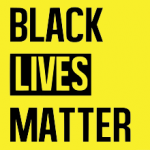By Matt Sapp

Last Tuesday marked 50 years since Martin Luther King, Jr. called for a “revolution of values” and an end to the Vietnam War at Riverside Church in New York City. Calling for an end to war was controversial then. It’s still controversial today.
On the same day that we remembered King’s speech, more than 80 civilians were killed by chemical weapons in Syria as part of the ongoing civil war there. Many of them were children. It’s not the first time Syria has used this tool of terror against its own people.
Nerve agents like the ones used this week in Syria kill indiscriminately, dooming those who breathe them in to cruel and torturous deaths. The use of these weapons is barbaric and banned by international law—as is the targeting of civilians.
In response, the United States launched more than 50 missiles into Syria last night.
And last week, a U.S.-led airstrike killed 200 civilians in Mosul, Iraq—again, many of them children. By some estimates, US-led airstrikes in Syria and Iraq killed more than 1000 civilians in March alone.
War is hell. It always has been. It always will be. There is no way to make it easier or nicer or cleaner or less cruel.
But war is not inevitable. To the extent that military action is ever necessary, it represents a prior failure to achieve peace. War is ALWAYS failure. And, too often, war is the easy way out.
War is easier than peace. War allows us to dehumanize and devalue our enemies. Peace requires us to see all people as equally loved by our Creator. Peace demands that we see that all people—especially our enemies—are created in the image of God.
43 “You have heard that it was said, You must love your neighbor[a] and hate your enemy. 44 But I say to you, love your enemies and pray for those who harass you 45 so that you will be acting as children of your Father who is in heaven. He makes the sun rise on both the evil and the good and sends rain on both the righteous and the unrighteous. 46 If you love only those who love you, what reward do you have? Don’t even the tax collectors do the same? 47 And if you greet only your brothers and sisters, what more are you doing? Don’t even the Gentiles do the same? 48 Therefore, just as your heavenly Father is complete in showing love to everyone, so also you must be complete. (Matt 5:38-43)
War is easier than peace. War allows us to give in to the excesses of our selfishness—to greedily claim that our physical and material well-being is more important than the well-being of others.
Peace, though, requires that we be willing to put ourselves in the shoes of our adversary and at times even to consider the needs of others ahead of our own.
3 Don’t do anything for selfish purposes, but with humility think of others as better than yourselves. 4 Instead of each person watching out for their own good, watch out for what is better for others. (Philippians 2:3-4)
War is easier than peace. War allows us to continue to hold the priorities of the marketplace alongside the priorities of God’s kingdom—and to pretend that they never conflict. Peace requires that we choose to clearly place the teachings of Jesus ahead of the gospel of capitalism.
24 No one can serve two masters. Either you will hate the one and love the other, or you will be loyal to the one and have contempt for the other. You cannot serve God and wealth. (Matt 6:24)
Fifty years ago, Dr. King warned of the dangers of “power without compassion, might without morality, and strength without sight.” Fifty years later we would do well to heed Dr. King’s warning.
Dr. King went on to encourage a movement from a “thing-oriented society” to a “person-oriented society,” a movement that would prioritize the human dignity of all people over profit and possessions.
The world stage looks different today than it did fifty years ago. Our adversaries are different. But Dr. King’s words still ring true to me.
Next week is Holy Week—a week when Christians everywhere will worship a man whose power to transform the world is unrivaled in human history. He was not, though, the God of War. He is the Prince of Peace.
Christ demonstrated the transformational power of peace so completely that a former instrument of torture and death—one often used indiscriminately as a tool of terror against Rome’s own subjects—is now a universal symbol of healing and safety.
Christ’s victory 2000 years ago was so complete that he turned Rome’s equivalent of Syria’s sarin gas canisters–the cross–into a symbol of hope and new life.
The kingdoms of this world shout that the ultimate way to demonstrate strength is to flex one’s muscles. Christ’s example during Holy Week demonstrates that the exact opposite is true.
The world stage looks different today that it did 2000 years ago. Our adversaries are different. But Christ’s example still rings true to me. In fact, I’ve staked my life on it.
That Christ was not a military hero was a great disappointment to many who followed him into Jerusalem that first Holy Week. That we worship a sacrificial lamb rather than a mighty warrior is a great disappointment to many who follow him into this Holy Week, too.
That is both the scandal and miracle of the cross. Why would someone so powerful voluntarily choose to be so weak and vulnerable?? It doesn’t make sense—until you see the cross as the most abrupt and effective break in the self-reinforcing cycle of violence the world has ever seen.
We’ve been told that war is a necessary precursor to a just and lasting peace. But war is never a precursor to peace; violence leads to more violence. Peace is the only precursor to peace.
Our nation’s leaders have a responsibility to protect and defend our nation’s interests. I would not want to be in their shoes.
My responsibility is different. Christian leaders have a responsibility to promote and enact an ethic consistent with the teaching and example of Jesus. We act in service of a different kingdom.
And in service of God’s kingdom, we need more people committed to peace.
As Martin Luther King Jr. said so presciently 50 years ago, “A true revolution of values will lay hand on the world order and say of war, ‘This way of settling differences is not just…We still have a choice today: nonviolent coexistence or violent coannihilation. We must move past indecision to action. We must find new ways to speak for peace.”
Holy Week begins on Sunday. Until then…
Peace.
Matt Sapp serves as the pastor of Heritage Fellowship in Canton, Ga.
Note: The views expressed here in columns and commentaries are solely those of the authors.
Interested in writing for CBF at Patheos? Submit your column idea to CBF Communications Director Aaron Weaver at [email protected].










